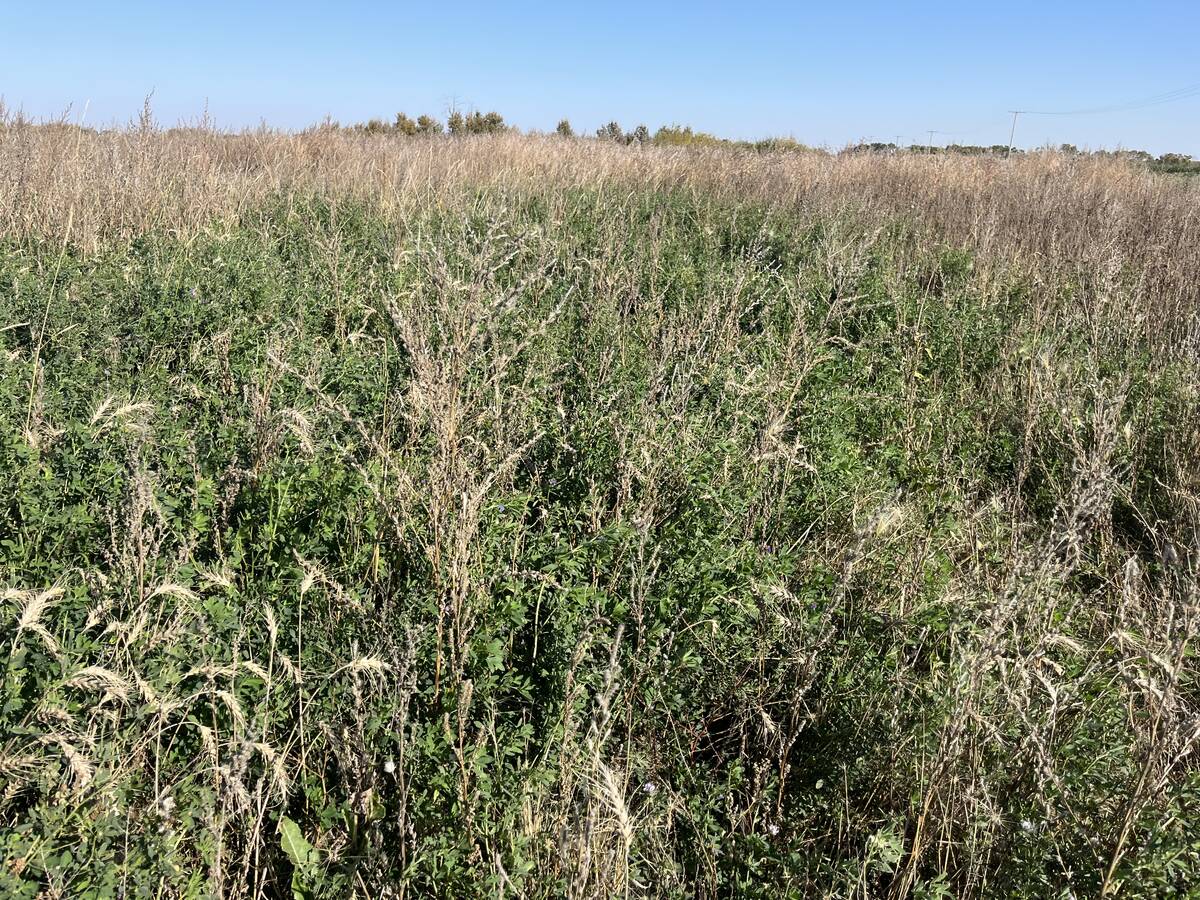Stress not only has an inhumane effect on pigs in a barn, it also damages meat quality, researchers have discovered.
Based on a behavioural study that compared use of prods or plastic paddles and tubes, researchers are urging producers to seldom, if ever, use pig prods.
“If we have the prod in hand and we’re put into a stressful situation, we use the prod in a way that we shouldn’t use prods,” said Manitoba veterinarian Walter Heuser.
In the study, Madonna Benjamin of Elanco Canada repeatedly moved pigs through a barn, each time coming through a choke point that caused the animals to bunch up and often refuse to move.
Read Also

Dormant seeding forages frees up farmer time and gets ahead of weeds
Dormant seeding isn’t common practice and can appear daunting, but there are some techniques to give Manitoba farmers an edge
With one group, handlers were instructed to use prods to make the pigs continue forward while the other group was to be moved only by slaps or taps from hollow plastic plumbing tubes.
The pigs that were urged to move with the plastic tubes showed little increase in overall stress levels and no noticeable meat quality problems. However, pigs that were repeatedly prodded showed greater signs of stress than usual.
About one in five of the poked and prodded pigs ended up either unable to move or with high body temperatures and blotchy skin colour. They also screamed a lot or showed multiple signs of distress.
As well, the pigs’ meat quality was damaged.
“There was a higher incidence of PSE (pale, soft and exudative) pork in pigs that were handled in an aggressive manner,” Heuser said.
Lactate levels soared in repeatedly prodded pigs, but remained low in pipe-slapped pigs.
Heuser said the amount of prodding and slapping in the experiment was probably far in excess of what would happen in a normal barn situation, but it revealed what high stress levels in a barn or slaughter plant can do to pigs.
Many in the pork industry thought the PSE problem could be eliminated by breeding out the porcine stress syndrome gene that has been proven to cause stressed pigs to produce bad meat. Since 1990 the pig breeding industry has worked hard to eradicate the gene, which is generally gone now from the Canadian industry.
However, Heuser said the results of this test show there is no magic bullet for killing the PSE problem.
“We have to look at other things: handling of pigs; perhaps nutrition; perhaps the way we design our barns; perhaps the way we design our slaughter plants for the movement of pigs; perhaps the stocking density Ñ how many pigs can we put on a truck when we transport them.”















